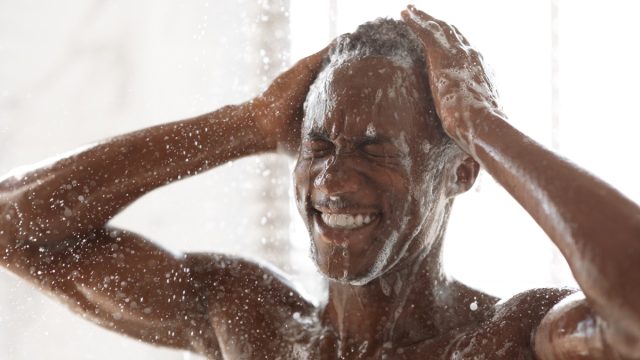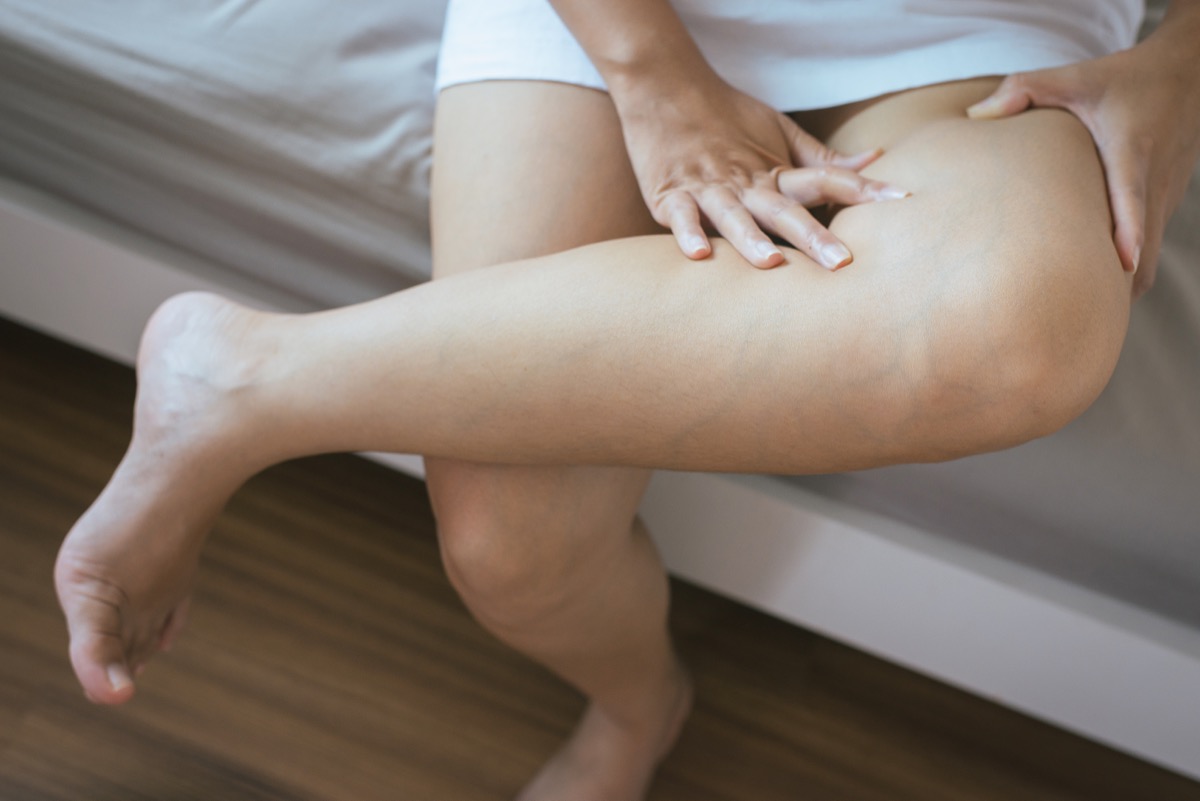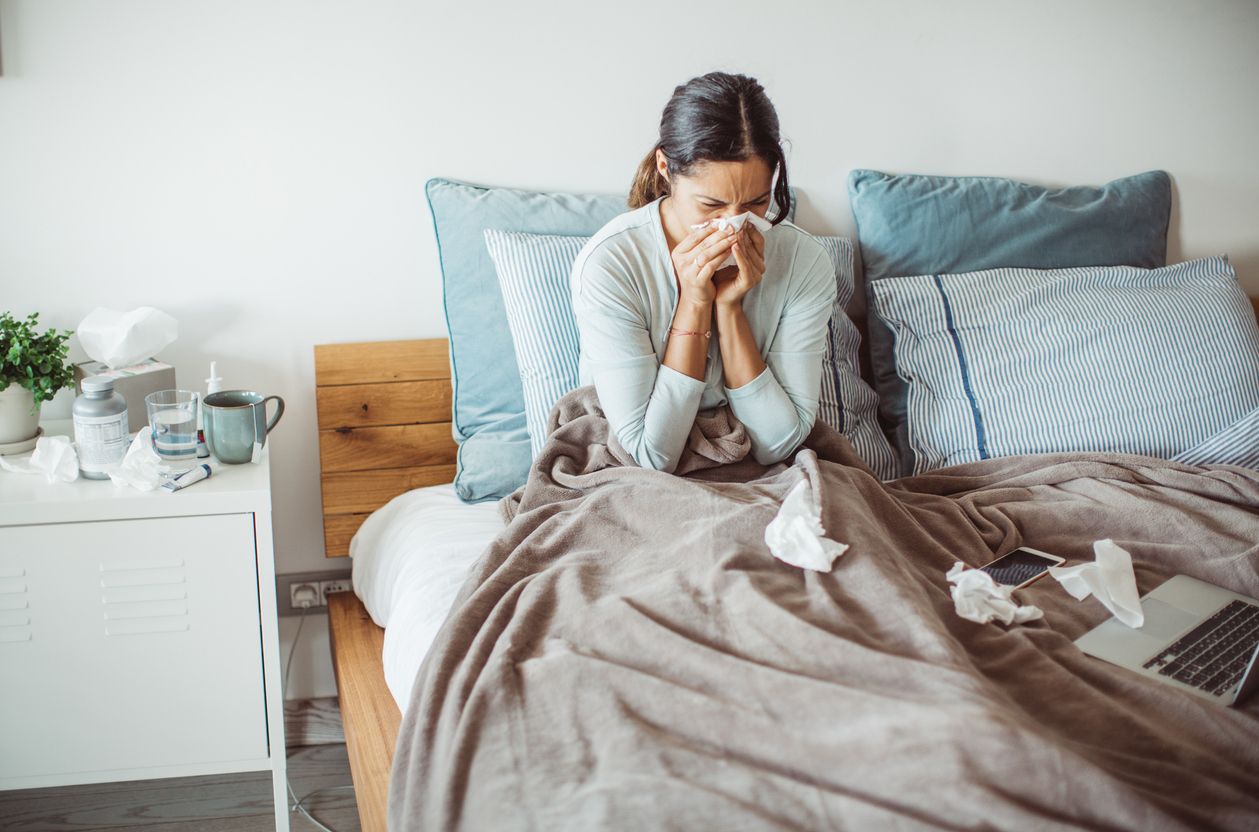What Happens to Your Body When You Take a Cold Shower Every Day for a Month

If you’ve spent any time on social media lately, chances are you’ve noticed a hot new trend: taking ice cold showers. Celebrities Miranda Kerr, Chris Hemsworth, Kristen Bell and other A-listers have all touted the benefits of embracing frigid water temperatures—and it’s catching on in health circles, too.
We checked in with an expert to learn more about the benefits of cold showers and cold plunges. Alex Trevatt, MD, who works as clinical lead at Avon Aesthetics and runs the medical education company Medistudents, says he’s “a big fan of cold showers” and has begun recommending them to patients to improve their well-being.
Read on to learn what happens to your body when you take a cold shower every day for a month to decide whether you want to take the plunge.
READ THIS NEXT: Never Start a Shower If You Haven’t Done This First, CDC Says.
Your circulation may improve.

According to Trevatt, taking regular cold showers can help boost circulation over time. “Cold water immersion has been shown to constrict blood vessels and then dilate them, leading to improved circulation,” he tells Best Life.
Experts from the Cleveland Clinic say this occurs because “the cold water puts your circulatory system into overdrive.” As the icy water shocks your skin, your body responds by pumping blood to your vital organs and constricting the blood vessels near the skin’s surface.
“This process stimulates blood flow, which—on the whole—is a good thing for your overall health,” they write. However, it’s worth noting that the Clinic says there may be better (and more comfortable) ways to increase circulation, including going for a 10-minute walk.
READ THIS NEXT: Doing This When You Walk Slashes Your Risk of Heart Attack, Cancer, and Dementia, New Study Says.
You may experience reduced inflammation.

If you suffer from inflammation or swelling, Trevatt says that taking regular cold showers may help. “Cold water exposure has been shown to reduce inflammation in the body, improving overall health and alleviating certain conditions such as arthritis,” he says.
Some athletes take cold plunges after hard workouts for exactly this reason. “There have been a couple of studies showing that there may be some decreased soreness after people were immersed in cold water for about 10 minutes versus those who did not do any cold therapy,” Tracy L. Zaslow, MD, an orthopedic specialist, tells Cedars Sinai. “When you’re in cold water, your blood vessels constrict so there’s less blood flow to the area, then there’s less swelling and inflammation leading to less pain.”
Your immune system may get stronger.

Cold showers can also give your immune system a boost, some experts say. “Cold water exposure has been shown to increase the production of white blood cells, which help to boost the immune system and fight off illness,” explains Trevatt.
In fact, a 2016 study published in the medical journal PLoS One probed the effects of cold showers on health-related absences from work. They enlisted 3,018 participants between the ages of 18 and 65 and assigned them to either take a hot-to-cold shower for 30, 60, 90 seconds, or to be in the control group. “A negative binomial regression model showed a 29 percent reduction in sickness absence for (hot-to-) cold shower regimen compared to the control group,” they concluded.
For more health news sent directly to your inbox, sign up for our daily newsletter.
You may get a mood and attention boost.

Among the most consistent benefits of cold showers is the mental boost you may experience. Experts say you can expect increased attention and improved mood. “Cold water exposure has been shown to release endorphins, which are natural painkillers and mood-enhancers,” says Trevatt.
However, some experts say cold showers and cold plunges can put a serious strain on your body, meaning it’s best to hold off on trying it out until you’ve discussed the risks with your doctor. If you do decide to try it out, go slow.
“If you are trying it for the first time, take your time and acclimatize, slowly reduce the temperature over days or weeks,” Lee Hill, PhD, an exercise physiologist and postdoctoral fellow at the Research Institute for the McGill University Health Center in Montreal tells Health. “Don’t shock your body into doing it full on for the first time.”